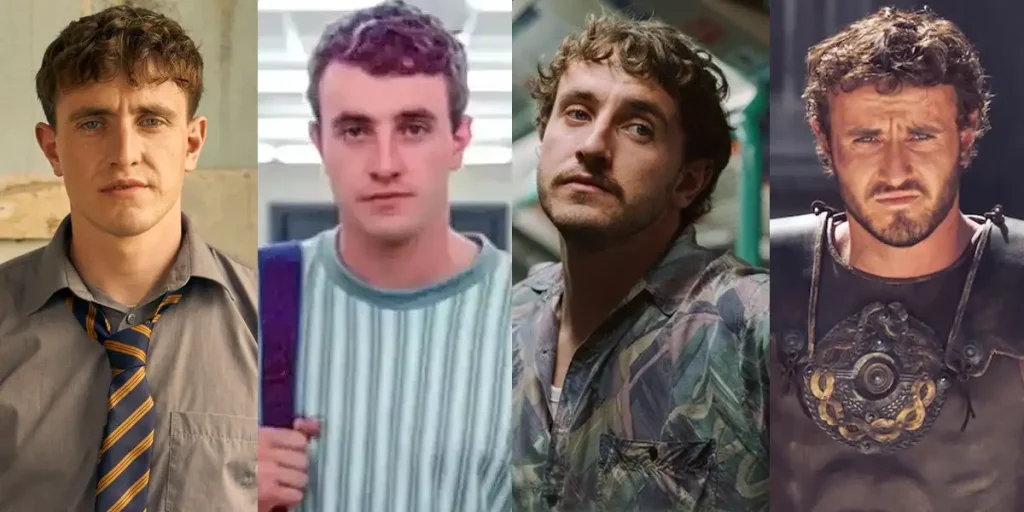While Paul Mescal’s Gladiator II role seems to deviate from the character archetype that earned him critical acclaim, it fits into his portfolio of characters striving to evolve.
Paul Mescal emerged into mainstream media in roles that presented deeply layered depictions of masculinity, creating nuanced conversations surrounding the archetype of modern young men. His roles garnered critical recognition for showing the insecurity, inadequacy and anxiety that persist in today’s generation of young men that had previously not been portrayed with the level of depth his projects provided.
In Normal People, he plays the lost teenager, who longs for a sense of comfort within himself that always seems just out of reach. In Aftersun, he depicts a depressed young father who wants to teach his growing daughter important life lessons while struggling to convince himself he has learned wisdom. In All of Us Strangers, he’s a lonely neighbor, detached from the world around him, yet desperate to find connection within it.
His performances in these subtly powerful projects have given audiences a more multi-dimensional understanding of the struggles young men face today. This is why his casting in Gladiator II, a multi-million-dollar movie epic, seemed to be such a severe redirection of Mescal’s professional focus. It proved especially surprising as the film’s predecessors fixated on a highly traditional version of what masculinity “should” look like, as opposed to the roles Mescal became known for playing, which championed the vulnerable side of masculinity.
While many were shocked by the news of Mescal’s latest role, this addition to his filmography does not completely deviate from his acting portfolio as people have suggested. From the outset, it seems those skeptical about his role in Gladiator II would be correct in thinking this role is Mescal breaking away from indie film to join the titans of blockbuster filmmaking. However, Mescal’s turn as Lucius reveals a deeper throughline in the actor’s work.
It’s not that all of Mescal’s characters are just melancholic men, completely adrift in the world, but rather men suffering under the massive weight of what they imagine their lives would be versus their reality, in which they are being held back by their own, very human, limitations.
How Normal People’s “Connell” Creates the Paul Mescal Archetype
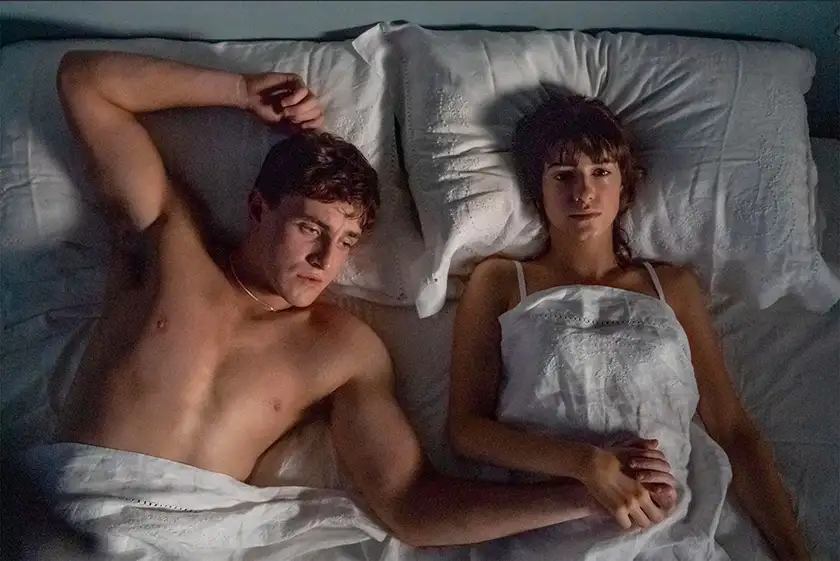
In 2020, Paul Mescal was shot into fame seemingly overnight because of his role as Connell in Hulu and the BBC’s hit show Normal People. Based on the Sally Rooney novel of the same name, the series follows the years-long relationship between Irish classmates Connell and Marianne (Daisy Edgar Jones, of Twisters), who develop a secretive relationship in their final year of secondary school and go on to fall in and out of each other’s lives for the next several years.
Mescal garnered praise for his sensitive and nuanced portrayal of Connell, a young man who, despite being widely liked in school, is desperately looking to others for approval. His performance opened up cultural conversations about what modern masculinity looks like and the stigma surrounding young men talking about their struggles with anxiety and depression.
When we meet Connell, he’s a well-liked, albeit quite shy, Gaelic footballer who is a solid member of the popular group of kids at school. Marianne is Connell’s foil in many ways. Where he is shy and timid, laughing when the group does and saying just enough to be a part of their conversations, Marianne is bold and unapologetically outspoken.
Connell’s mother works for Marianne’s family as their housekeeper which forces the two students into one another’s orbit. When they begin their intimate relationship, the two are fascinated by each other. Marianne understands desire and connection in a way she has never felt before with Connell. Connell hopes some of Marianne’s fearlessness might help him step into his own. Before he gets to know her he has no strong opinions nor sense of self he is clinging to, but rather an overwhelming fear of rejection that holds him back in ways he is yet to uncover.
At his core, this is what makes Connell such an interesting character to dissect. In his secondary school days, he sees Marianne’s decision not to conform, not shrink herself into a role that is more palpable for their classmates, as a bad thing. But as his relationship with Marianne evolves, he sees this fear of rejection from others is controlling the way he lives his life and stunting him from growing into the type of person he wants to be. This leads him to take a leap and leave his small town in search for a grander life at university.
Conell is the character that truly creates the Paul Mescal Archetype. He leaves secondary school and sees university as this opportunity to evolve into the person he always wished he could be which his relationship with Marianne helped him realize.
In his imagination, he created this ideal type of person he’d evolve into by leaving his small hometown which he had always blamed as the thing standing in the way of his growth. In university, he’d stop caring about the opinions of others, he wouldn’t be held back by the person he was in secondary school and he’d pursue his dreams in a way he could never during secondary school.
However, when he gets to university he feels a sense of isolation he has never experienced before. He’s no longer “the cool footballer” and struggles to put himself out there to make connections. The world outside of his hometown shows it’s not the idealized place he had imagined and while trying as he may to join life in this totally uncharted space, his shyness and anxiety hold him back.
He thought he could free himself of things that held him back from evolving by leaving his old life behind but the thing that had been truly holding him back the entire time was himself and his struggle to overcome the anxiety and fear of others’ opinions.
How Aftersun’s Calum Builds the Paul Mescal Archetype
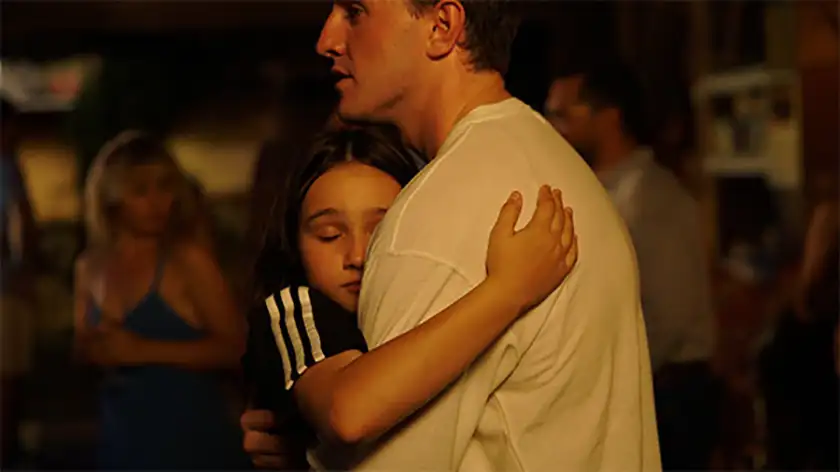
Mescal’s next critically acclaimed role came in 2022 with Charlotte Wells’ debut feature film Aftersun. The movie is a semi-autobiographical story about a young woman named Sophie (Celia Rowlson-Hall) looking back on a vacation she took to Turkey with her father Calum (played by Mescal) twenty years ago. The movie is loosely inspired by a vacation Wells took with her father at the same age as the young version of Sophie (Frankie Corio of Bagman) and serves as an introspective, artful look at parent-child relationships, coming of age and understanding your place in the world.
Even though Sophie is only 11 during this vacation, she knows something is going on with her father. While never directly stated, it’s implied Sophie’s mother has primary custody of her and this vacation is a big deal for Calum. When they arrive at their hotel it’s completely lackluster, their room not even having the two beds Calum booked, forcing him to sleep on a fold-up cot so his daughter can have a bed to herself.
While Calum is putting on a brave face for his daughter, he sees this vacation as an amalgamation of his shortcomings as a father. Calum is 31 and is grasping at straws in his life, hoping to discover a path to follow that is solid enough to pull him out of his uncertainties. He thought his life would be more substantiated by now and it’s not just himself that he needs to sort things out for, but for Sophie as well. She stands as a constant reminder of his greatest achievement and his strenuous inadequacy.
The struggle Calum faces to be the father he wishes he could be to Sophie is what makes him fit into the Paul Mescal archetype. He’s a man that’s adrift in the world with his daughter serving as his only anchor. His struggle with depression has made it difficult for him to actualize any of his plans in life. Nothing has really worked out for him the way he hoped it would. The relationship between him and Sophie’s mother ended long ago. His recent plan to open up a café never got off the ground. He hasn’t been able to hold onto a steady romantic relationship, introducing Sophie to a myriad of former girlfriends he thought would evolve into deeper connections.
He can’t get a handle on life as it passes him by, no matter how hopeful he stays. Time and circumstances circumvent his efforts to realize any of his dreams into solid plans or connections. Throughout the film, Calum practices Tai Chi whenever he has a moment to himself. Tai Chi is a form of meditation through movement; it’s able to ground Calum and connect him to the moment he is in. His dedication to Tai Chi emphasizes his struggle with the reality of his situation and his attempts to address his depression.
He imagined this vacation to be an exciting adventure for him and his daughter. Moreover, he imagined he would be a certain type of father to Sophie. The type of dad with a stable job, a solid relationship and an ability to offer assurance to his daughter that life will always work out in her favor. Calum’s inability to address his persistent struggles with depression has truly held him back from being able to be the great man he imagined he’d one day become which is what makes this character fit the Paul Mescal Archetype.
How All of Us Strangers’ Harry Embodies the Paul Mescal Archetype
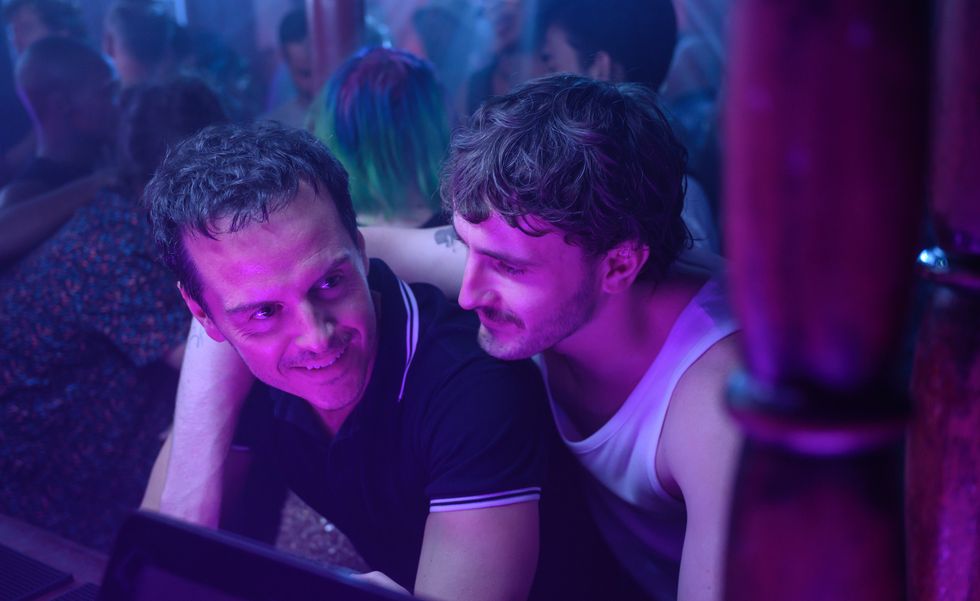
In Andrew Haigh’s 2023 All of Us Strangers, Mescal plays opposite Andrew Scott’s Adam, a screenwriter who is drawn back to his childhood home after starting a relationship with his downstairs neighbor (Mescal’s Harry) with the desire to heal from the traumatic loss of his parents 30 years ago.
Harry and Adam are the only two residents we ever see in their London apartment building. They pass each other with an intrigued interest until one night Harry shows up to Adam’s door drunk and wanting to come into his apartment, remarking the silence of the empty building is unbearable. While Adam turns him away, a few days later the two finally connect and develop a romantic relationship.
Through their relationship, we learn that Harry has never felt a very strong sense of belonging. He’s not often in romantic relationships, even though it is not for a lack of effort. He doesn’t have many friends. His parents are okay with his sexuality, but at the end of the day who wants their parents who refuse to acknowledge their sexuality beyond a vague blanket acceptance?
Harry desires connection. He tells Adam that it stems back to feeling like a stranger in his own family. He grew up overweight, has never been interested in girls and always felt like he was never in the center of his family with his brother, sister, father and mother but rather on the edge of it. As if he was vaguely tethered to its core, but time and circumstances are pushing him further and further over to the edge of it.
In a conversation with Adam, Harry admits he has had this feeling of “otherness” he has experienced his entire life. He thought the massive weight of hiding his sexuality from those he was meant to feel closest to was what this feeling of “otherness” was and that coming out would give this feeling a name or identity which would lead to being able to let go of it. However, as truly aligned with the other characters in the Paul Mescal Archetype, it didn’t.
Once he came out, nothing changed. He didn’t become closer with his family; they didn’t feel like they knew him deeper, or he knew them better at all. Not only did it not heal that relationship, the feeling of otherness festered into every other corner of his life as he never felt suitable for close relationships because he has no point of reference for how to navigate one.
Harry so desperately seeks connection but doesn’t know exactly what it is that makes him feel like a stranger in the lives of everyone he is supposed to be close to. He imagined that coming out, sharing his true identity with his family, would break down whatever barriers stood in the way of connection. But once he did, he realized the feeling of otherness he felt is much more elusive, much deeper than he imagined and the connection he desperately sought was much more unattainable.
How Paul Mescal’s Gladiator II Role Fits Into His Archetype
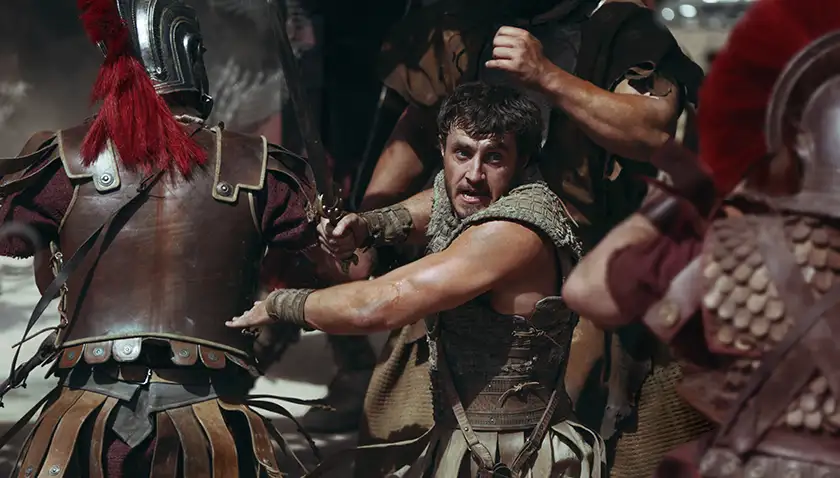
From first glance, Mescal’s Gladiator II character would seem to be the polar opposite of the roles that he has made a name for himself portraying. Whereas Normal People, Aftersun and All of Us Strangers show stripped-down, raw depictions of fragility and vulnerability, Gladiator II is a movie spectacle that is built around extravagant displays of brute masculinity.
Gladiator II brings audiences back to ancient Rome two decades after the events of Gladiator. Under bloodthirsty twin rulers Emperor Geta (Joseph Quinn, of A Quiet Place: Day One) and Emperor Caracalla (Fred Hechinger, of Kraven the Hunter), the Roman empire is seeking to spread regardless of its inability to feed the subjects it already has. The film opens in Numidia, one of the last North African territories yet to be claimed by Rome. Mescal’s character Lucius lives in Numidia with his beloved wife Arishat (Yuval Gonen), both of whom are battling to defend the region from Roman capture.
Lucius is not an average soldier. He is the grandson of Rome’s former emperor Marcus Aurelius, son of Lucilla (Connie Nielsen, of Deadly Lies) and the famed late gladiator Maximus (Russell Crowe, of The Pope’s Exorcist). He was sent away after his father died in the coliseum and turned his back on his birthright to be Rome’s leader ever since.
Once the Roman army shows up at his home, kills his wife and takes him prisoner he decides the only way to appropriately exact vengeance is to kill the man who put an arrow through his wife’s chest, General Acacius (Pedro Pascal, of The Last of Us). He makes a deal with gladiator slave owner Macrinus (Denzel Washington, of The Equalizer 3) that he will fight under his command in exchange for the opportunity to kill General Acacius.
However, as Lucius enters the world of the gladiators and sees how Rome has strayed so far from what his grandfather’s vision for the empire would be, a new need arises in him. Revenge and bloodlust are no longer the only factors that drive him, but an understanding he needs to return to Rome to help restore its glory.
This character arc and the subtle realization of his true calling throughout the progression of the film make it clear that no matter how different of a role this feels for Mescal to embody, it’s not as far removed from the wheelhouse of his archetype.
Lucius struggles to overlook his hatred for Rome and how the “glory of the empire” has taken his family from him time and time again. He thought Numidia was far enough away to never be touched by the empire and his quiet life with Arishat was his density. When that home and that dream of a peaceful existence are ripped from him once more in the name of Rome, he suffers under the weight of that dream being crushed and has to face the reality that regardless of what he wanted his life to be, Rome has always been his destiny.
While the physicality of Lucius’ character drives his depiction of hatred and his desire for revenge in Gladiator II, there are subtleties sprinkled into Mescal’s performance that build nuance to his role. He’s a natural leader: the men with whom he is enslaved respect his grit and tenacity. When he is in the coliseum fighting, he earns over both the commoners and powerful rulers alike. He recalls lessons from childhood about his grandfather’s teachings and is a savvy military man when needed.
Unlike the other characters he has played, when we meet Lucius he is settled into who he is as a person. However, the capture of Numidia completely disrupts this sense of self. He is no longer Arishat’s husband, he hasn’t been Lucilla’s son for decades and his birthright as the Prince of Rome is not something he can (nor wants to at that time) come back and claim.
When he enters Rome, his one mission is revenge, but as he begins to understand how the political landscape has corrupted this once glorious empire, he wants to stop the poison of greed from spreading further. Similarly to his other roles, he has to question what it is he really wants and what he must do in order to become the man he was born to be.
With director Ridley Scott confirming the development of Gladiator III, Gladiator II serves as a true origin story for the character of Lucius. It also further supports the concept that Gladiator II was largely about Lucius finding his identity within the new cultural landscape of Rome and desperately trying to take control of the direction of his life after he had others do so for him up until the film’s powerful finale.
Paul Mescal and His Characters’ Longing to be Better
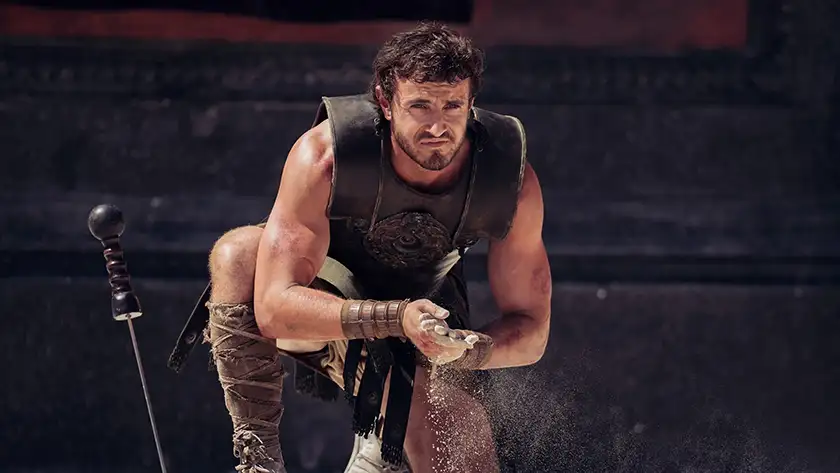
As an actor, Mescal gravitates towards performances that center around nuanced depictions of masculinity, identity and coming to terms with the idea of who you wish you were versus who you actually are. In Normal People, Connell wants to be able to unabashedly embrace who he is without the fear of judgment from others. In reality, his desperate need for approval and struggles with anxiety hold him back from being able to find a place where he feels like he fits into the world.
Aftersun’s Calum wants to be a good dad to Sophie. He wants to be the type of person she looks up to in admiration who has the answers to the questions she’s asking him about life. But the limitations his depression has put on his search for purpose makes finding his passion and his meaning in life seem impossible.
Harry in All of Us Strangers wants to be the type of man who can love deeply and be met with that same type of love in return. But his years of feeling like an outcast in his own family have made it feel like he’ll never find his place in this world.
With Gladiator II Lucius believed he would live out a quiet life in Numidia with Arishat, but he cannot escape his fate as the Prince of Rome. He is drawn to Rome and maintaining this monstrous empire regardless of the pain the same mission has caused him his entire life.
The characters within the Paul Mescal archetype are forced to confront the challenges that arise from trying to live up to more evolved versions of themselves. When you watch his work back, whether he is Conell, Calum, Harry, or yes, even Lucius, you will see a character striving to become the man they always imagined they’d one day be. And with each man, you will see the heartache that comes with the realization their very human limitations will never allow them to reach him.

